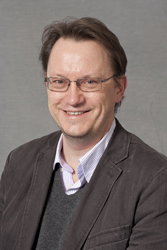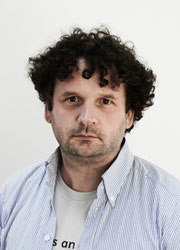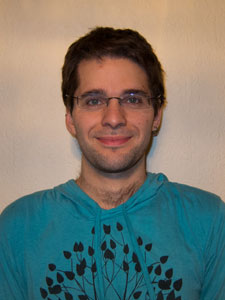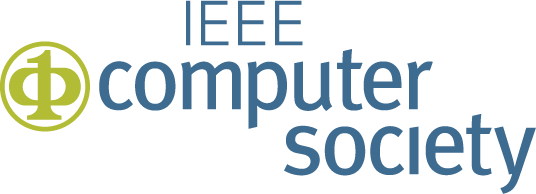10th Testing: Academic and Industrial Conference – Practice and Research Techniques (TAIC PART)
Software testing is the perfect candidate among software engineering activities for the union of academic and industrial minds. The Testing: Academic and Industrial Conference – Practice and Research Techniques (TAIC PART) is a unique event that strives to combine the aspects of a software testing conference, workshop, and social gathering. TAIC PART brings together industrialists and academics in an environment that promotes meaningful collaboration on the challenges of software testing. TAIC PART is sponsored by representatives from both industry and academia. The workshop brings together software developers, end users, and academic researchers who work on both the theory and practice of software testing. TAIC PART 2015 is the tenth edition in a series of highly successful events. Take a look at previous events and discover what happened at TAIC PART in the past eight years by following the links on the right. This year, TAIC PART will be co-located with ICST 2015 in Graz, Austria. Please consider submitting a paper and/or registering to attend the 2015 edition of TAIC PART so that you can be part of a premier software testing conference. Individuals with questions about TAIC PART are encouraged to contact one of the workshop organizers.
6th International Workshop on Security Testing (SECTEST 2015)
https://sites.google.com/site/sectestworkshop15/
To improve software security, several techniques, including vulnerability modelling and security testing, have been developed but the problem remains unsolved. On one hand, SECTEST workshop tries to answer how vulnerability modelling can help users understand the occurrence of vulnerabilities so to avoid them, and what the advantages and drawbacks of the existing models are to represent vulnerabilities. At the same time, the workshop tries to understand how to solve the challenging security testing problem, how security testing is different from and related to classical functional testing, and how to assess the quality of security testing. This is in particular interesting since testing the mere functionality of a system alone is already a fundamentally critical task. The objective of SECTEST workshop is to share ideas, methods, techniques, and tools about vulnerability modelling and security testing to improve the state of the art. In particular, the workshop aims at providing a forum for practitioners and researchers to exchange ideas, perspectives on problems, and solutions. Both papers proposing novel models, methods, and algorithms and reporting experiences applying existing methods on case studies and industrial examples are welcomed.
10th International Workshop on Mutation Analysis (Mutation 2015)
https://sites.google.com/site/mutationworkshop2015/
Mutation is acknowledged as an important way to assess the fault-finding effectiveness of tests sets. Mutation analysis has mostly been applied at the source code level, but more recently, related ideas have also been used to test artifacts described in a considerable variety of notations and at different levels of abstraction. Mutation ideas are used with requirements, formal specifications, architectural design notations, informal descriptions (e.g. use cases) and hardware. Mutation is now established as a major concept in software and systems V&V and uses of mutation are increasing. The goal of the Mutation workshop is to provide a forum for researchers and practitioners to discuss new and emerging trends in mutation analysis. We invite submissions of both full-length and short-length research papers as well as industry practice papers.
4th International Workshop on Combinatorial Testing (IWCT 2015)
The 4th International Workshop on Combinatorial Testing (IWCT) focuses on combinatorial testing, a widely applicable generic methodology and technology for software verification and validation. In a combinatorial test plan, all interactions between parameters up to a certain level are covered. For example, in the special case of pairwise testing, for every pair of parameters, every pair of values will appear at least once. Studies show that CT is more efficient and effective than random testing and expert test selection methods. CT has gained significant interest in recent years, both in research and in practice. However, many issues remain unresolved, and much research is still needed in the field.
In this workshop, we plan to bring together researchers actively working on combinatorial testing and create a productive and creative environment for sharing and collaboration. The workshop will also serve as a meeting place between academia and industry, uniting academic excellence with industrial experience and needs. This will allow participants from academia to learn about the industrial experience in practical applications of CT to real-life testing problems. Industrial participants will have opportunities to meet the leading scientists in the field and learn of the latest advances and innovations.
2nd International Workshop on Software Test Architecture (InSTA 2015)
http://www.aster.or.jp/workshops/insta2015/
It is important to design software test architectures for software testing activities. The software test architecture is a key part of test strategies. This workshop is for researchers and practitioners to comprehensively discuss concepts of test architectures. In software testing, there are various keywords for test design concepts. However, there are no comprehensively standardized diagrams or notations to communicate the test design concepts, to increase the productivity and reusability of tests by raising their levels of abstraction, to generally grasp the overall perspective of the software for testing it. By focusing on the higher concepts of test architectures, results of our discussions can raise the quality of the testing. Test architectures must be approached indirectly as a part of the test strategies. Some organizations are working to establish new ways to design smart test architectures, but there is no unified understanding of the key concepts of test architectures. This workshop is intended to allow researchers and practitioners to comprehensively discuss the central concepts of test architectures. InSTA will be held in middle of April 2015 co-located with ICST 2015 in Graz, Austria. Please join InSTA by submitting your papers and registering for participation.
12th Workshop on Advances in Model Based Testing (A-MOST 2015)
http://msdl.cs.mcgill.ca/conferences/amost/
The increasing complexity of software results in new challenges for testing. Model Based Testing (MBT) continues to be an important research area, where new approaches, methods and tools make MBT techniques more deployable and useful for industry than ever. Models and different abstractions can ease comprehension of a complex system and ease test generation and automation. A-MOST 2015 will bring together researchers and practitioners interested in the topic of Model Based Testing.
The use of models for designing and testing software is currently one of the most salient industrial trends with significant impact on the development and testing processes. Model-based tools and methods from have been successfully applied and continue to converge into comprehensive approaches to software and system engineering. The area encompass models derived from object-oriented software engineering, formal methods, and other mathematical and engineering disciplines.
13th User Symposium on Software Quality, Test and Innovation (ASQT 2015)
Twice before over the past 50 years, two waves of information technology (IT) radically reshaped competition and strategy of enterprises; we now stand at the brink of a third transformation. Before the advent of modern IT, products were mechanical and activities in the value chain were performed using manual, paper processes and verbal communication. The first wave of IT, during the 1960s and 1970s, automated individual activities in the value chain. The rise of the internet, with its inexpensive and ubiquitous connectivity, unleashed the second wave of IT-driven transformation. This enabled coordination and integration across individual activities. It allowed companies, for example, to closely integrate globally distributed supply chains. Now, in the third wave, IT is becoming an integral part of the product itself. Embedded sensors, processors, software and connectivity (cyber-physical systems), coupled with a product cloud are driving dramatic improvements in product functionality and performance. Thus software quality assurance and software testing increasingly needs to adopt processes and techniques to address the challenges in these heterogeneous networks and environments (e.g., mobile environments, distributed systems, cloud services etc.). Therefore, this year’s target topic deals with quality assurance of applications in heterogeneous networks and environments.
ASQT aims to
- facilitate exchange of industry case studies in the field of software development and operating / sourcing software,
- enable academic researchers and industry innovators to exchange ideas and results, and
- disseminate scientific results as well as expertise in the field of quality assurance and software testing
ASQT 2015 is the 13th edition in a series of highly successful two-day user symposiums in the field of software testing, quality and innovation. This year, ASQT will be co-located with ICST 2015. ASQT 2015 and ICST 2015 offer shared keynotes and a shared session (practitioner’s topics). ASQT provides a vivid forum for development engineers, test engineers, quality managers, CIOs and academic researchers (e.g., from universities and industrial research centres) and promotes use-inspired collaboration between industry and academia on the upcoming challenges of software quality, test and innovation. Beside of topical cross-fertilization, ASQT provides an excellent networking opportunity with a focus on the D-A-CH area and CEE. The city of Graz with its superb quality of life offers a charming setting for the lively get-together in the evening.




